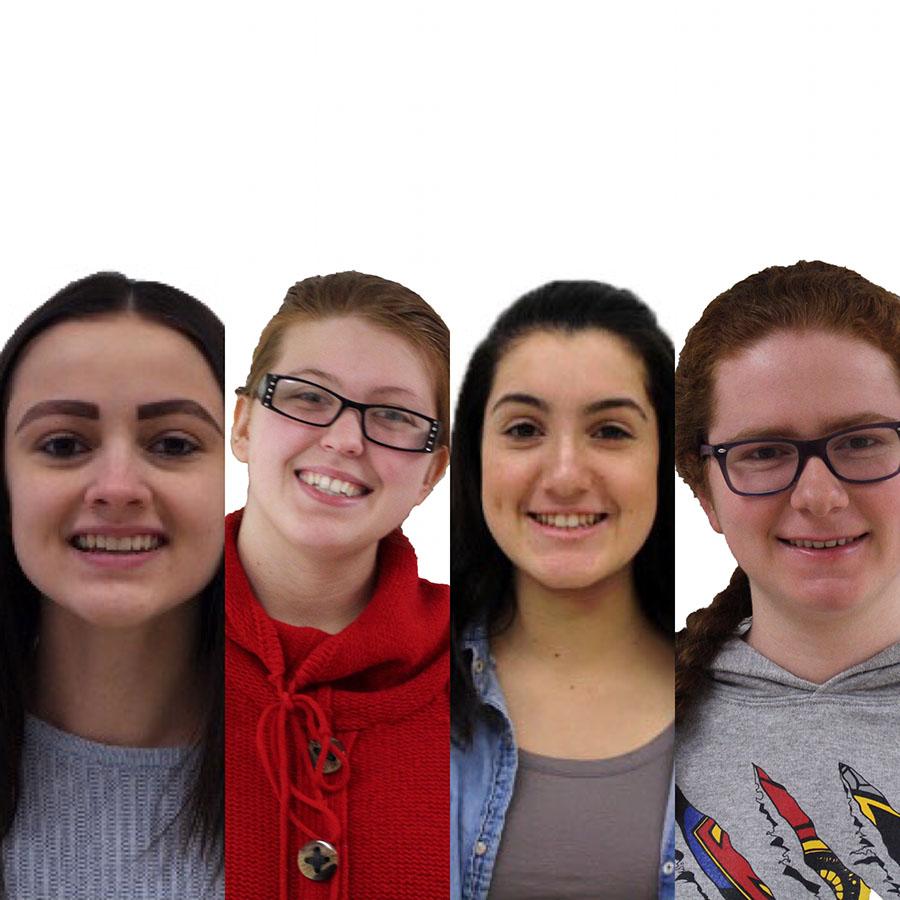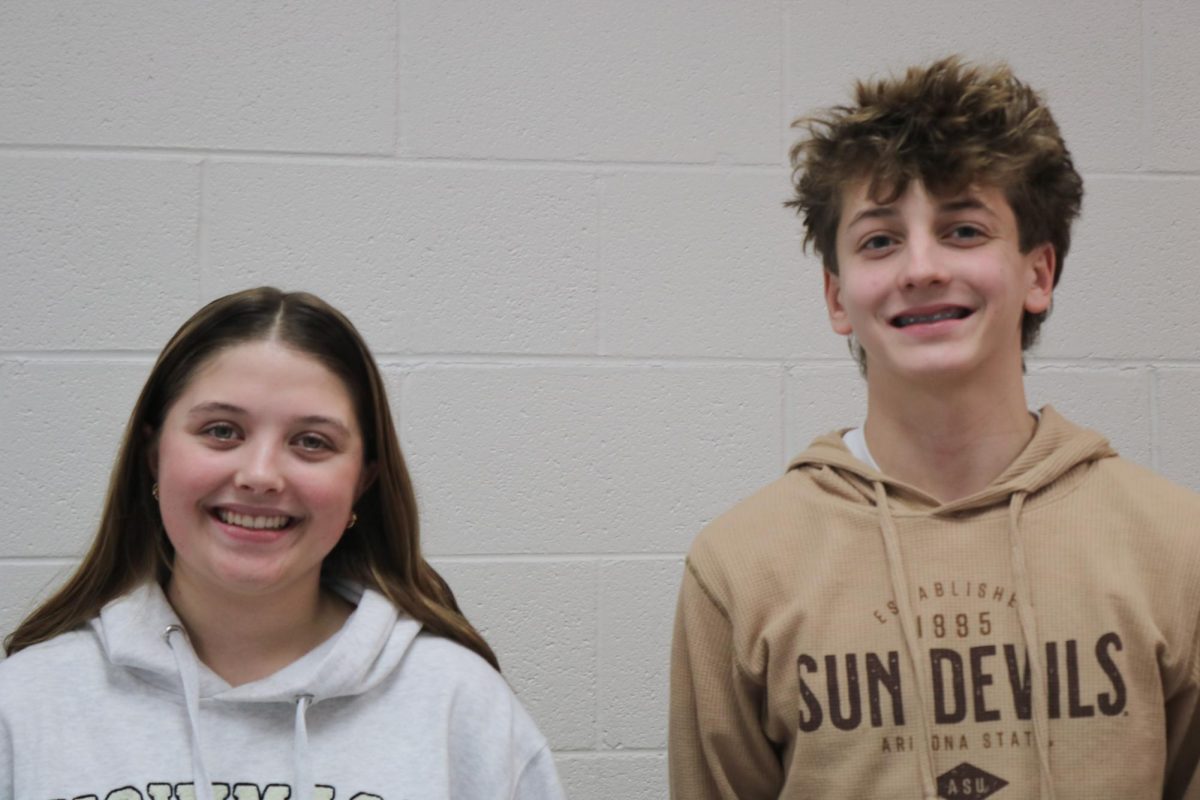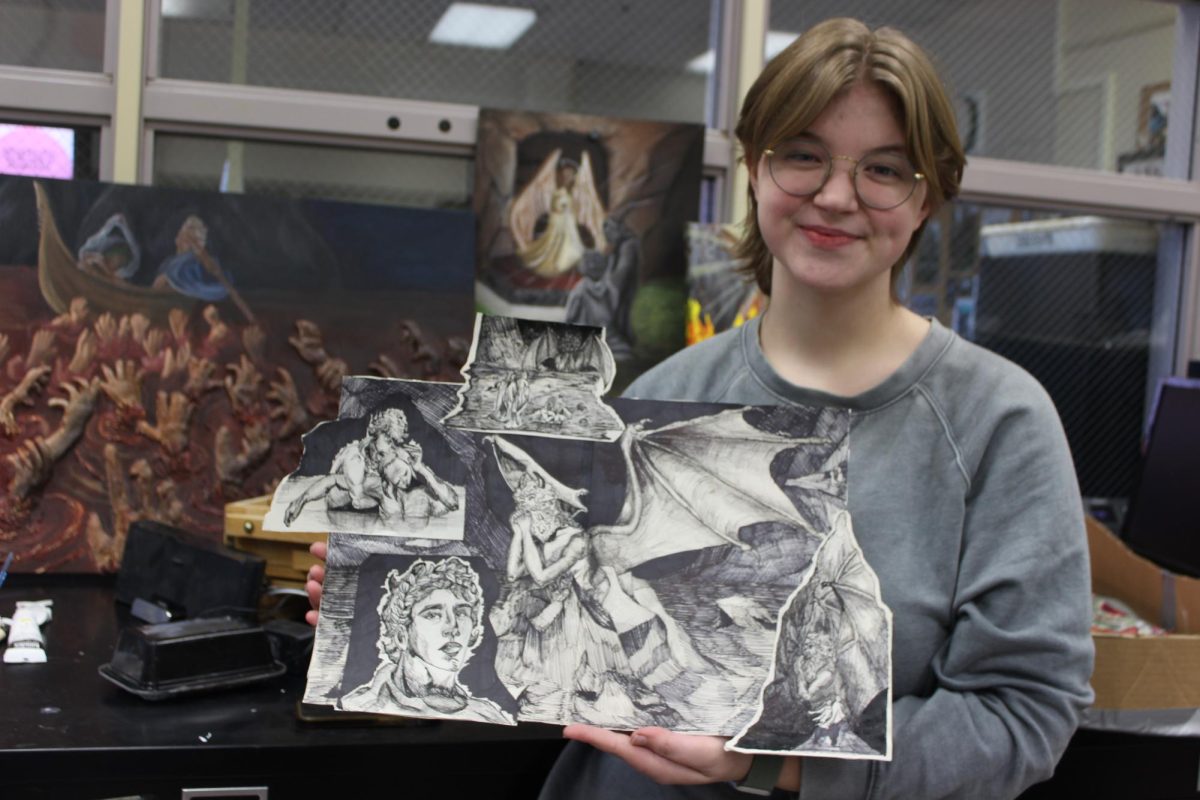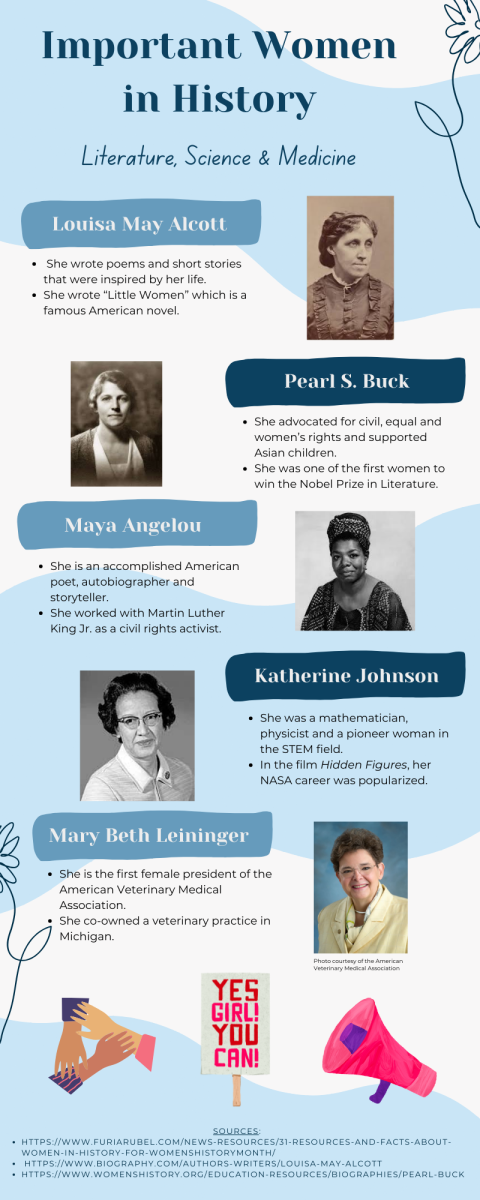Speaking foreign languages can open a world of possibilities. For some, it allows them to travel and connect to people; for others, it’s simply a cool thing that someone will show off at school. However, speaking foreign languages for most students is limited to a singular class period, if that. While the idea of learning a different language can be a challenge for some people, knowing more than two is daunting.
According to ilanguages.org, only 13 percent of the world can speak at least three languages, yet a few Libertyville High School students have found their way into this small percentile.
Sabrina Kite
While most bilingual or trilingual students speak other languages because of their family, others seek the opportunities by themselves. Libertyville offers a wide range of language classes and some students, like senior Sabrina Kite, have used these classes to master new languages. Kite learned Spanish and German because of her interests in the world and different languages.
Although Kite said she is only fluent in English, Kite is in the highest levels of Spanish and was in the highest level of German at the school.
“I’ve taken Spanish since middle school, and then I’ve always been interested in traveling to Germany and traveling abroad in general,” Kite said. “So I thought that learning more languages would help me do that.”
Kite hopes to continue to foster this love of languages by taking more language classes in college. She plans on taking more German and Spanish courses, and possibly others if her schedule allows it.
“I’m looking [to go into] international business,” Kite mentioned. “So I wouldn’t major in any language, but I think it would definitely help me in college and in my career.”
Vivien Zaretsky
For some students, knowing a language besides English comes with their heritage. This applies to senior Vivien Zaretsky, who has been speaking Russian since she was born.
“My parents would always speak [Russian] in the house around me,” Zaretsky said. “And my grandmother, she doesn’t speak any English, even to this day. So I speak with her in Russian in the house all the time.”
At the age of 6, Zaretsky learned English, although it was difficult for her. “For me, the hardest [language to learn] was English. But I caught on pretty fast because I was much younger. The other ones were easy,” Zaretsky remarked.
Once she was fluent in two languages, she moved on to her third: Spanish. She started learning the language in fifth grade in school.
“I started learning in elementary school, and I just really liked learning another language because I thought it was super cool,” Zaretsky commented. “I’ve always just loved it.”
Zaretsky noted that there were many similarities between Spanish and Russian, making it easier for her to pick up Spanish.
Zaretsky recognizes that knowing more than two languages gives her an advantage in more ways than just speaking with people who know Spanish or Russian.
“I feel that learning another language helps you connect to another culture, another way of thinking,” Zaretsky said. “If you learn another language, you understand another type of person.”
In the future, she hopes to continue studying languages and improving her vernacular by taking classes in college.
Annika McDermott-Hinman
Speaking other languages can be vital when it comes to living in another country, which was the case for senior Annika McDermott-Hinman.
When she was 3 years old, her mother started speaking German to her younger sister, which McDermott-Hinman picked up immediately. This came in handy when she was in third grade while her family spent a year in Germany. Since then, Annika has been speaking German with her family and is fluent.
However, McDermott-Hinman began speaking French by taking classes through the school. She went on the French exchange, and said she “was able to understand what people were saying and communicating to me.” She currently is in the Advanced Placement French V class.
“French was obviously harder [to learn] because it was in class, but I do think it was easier to learn because I already had another language to base it off of,” said McDermott-Hinman. “In terms of structure, there’s some similar structures [in German] that don’t exist in English so it was easier to [understand] the French [structure].”
McDermott-Hinman is grateful for the languages she has been taught because it allows her to relate to people she wouldn’t normally connect with.
“It helps you kind of understand different perspectives. I’ve seen studies that say people who are bilingual [or trilingual] are better at understanding or empathizing with other people because it’s easier to understand people with a different point of view,” she remarked.
In the future, McDermott-Hinman plans to continue using her linguistic talents by potentially living in Germany or communicating with those in different countries in a science-based field.
“In a lot of the sciences, there is obviously a [big] international community,” McDermott-Hinman explained. “So, it’d be really useful to speak with people from other countries and communicate.”
Melissa Moubayed
Most students learn languages through family, traveling or classes. Sophomore Melissa Moubayed combined all of these.
Moubayed started learning three languages as soon as she was born. From her mother, she learned Armenian, which she speaks to her and her sister, and from Moubayed’s father, she learned French. Moubayed noted that when they are all together as a family, they strictly speak English.
“My grandma knew [Armenian], so she taught my mom,” Moubayed said. “My dad doesn’t speak Armenian, he just speaks French and English because he grew up in Quebec.”
After learning French, Armenian and English, in that order, the three languages stuck for Moubayed.
Although Moubayed was born in Armenia, she is a Canadian citizen. Her family has moved between Canada and the United States, and she hopes to return to Quebec after college. She continues to study French at Libertyville, but said “French class [is] pretty easy.” She studies in order to “have some French around every year” and continually keep up with French.
Moubayed’s favorite language to speak is Armenian because not as many people are fluent in it. It is more of a rarity to meet people who speak Armenian, whereas Moubayed feels French is more common. She appreciates communicating with people who also speak Armenian, even though the occurrence is rare. Moubayed hopes to teach her future children Armenian, French and English as well.








![Senior River Thompson joins the Jazz Ensemble by singing “That Old Black Magic” by Mercer and Arlen Arr. Mark Taylor, along with senior Annie Brody on guitar and junior Thomas Teixeira on bass, earning big applause. “[The concert had] great energy because it's the last [jazz concert] of the year,” Brody said.](https://www.lhsdoi.com/wp-content/uploads/2025/04/Eight-That-Old-Black-Magic-1200x800.jpg)
![Mr. Abullh Ali, manager/assistant, helps open Queen Yemeni Coffee in downtown Libertyville at 606 North Milwaukee Ave. With the help of employees such as manager and LHS senior Yousef Taha, they are able to bring the Yemeni and Ethiopian culture to Libertyville by using their Queen spices, cinnamon and cardamom in their drinks such as Adani Chai, which is inspired by Sheda, the Queen of Yemen and Ethiopia. “The history of our coffee [is] a long history and we believe that Yemen and Ethiopia started the coffee and we are bringing something unique to the community,” Mr. Ali said.](https://www.lhsdoi.com/wp-content/uploads/2025/04/Photo-1-1200x800.jpg)




